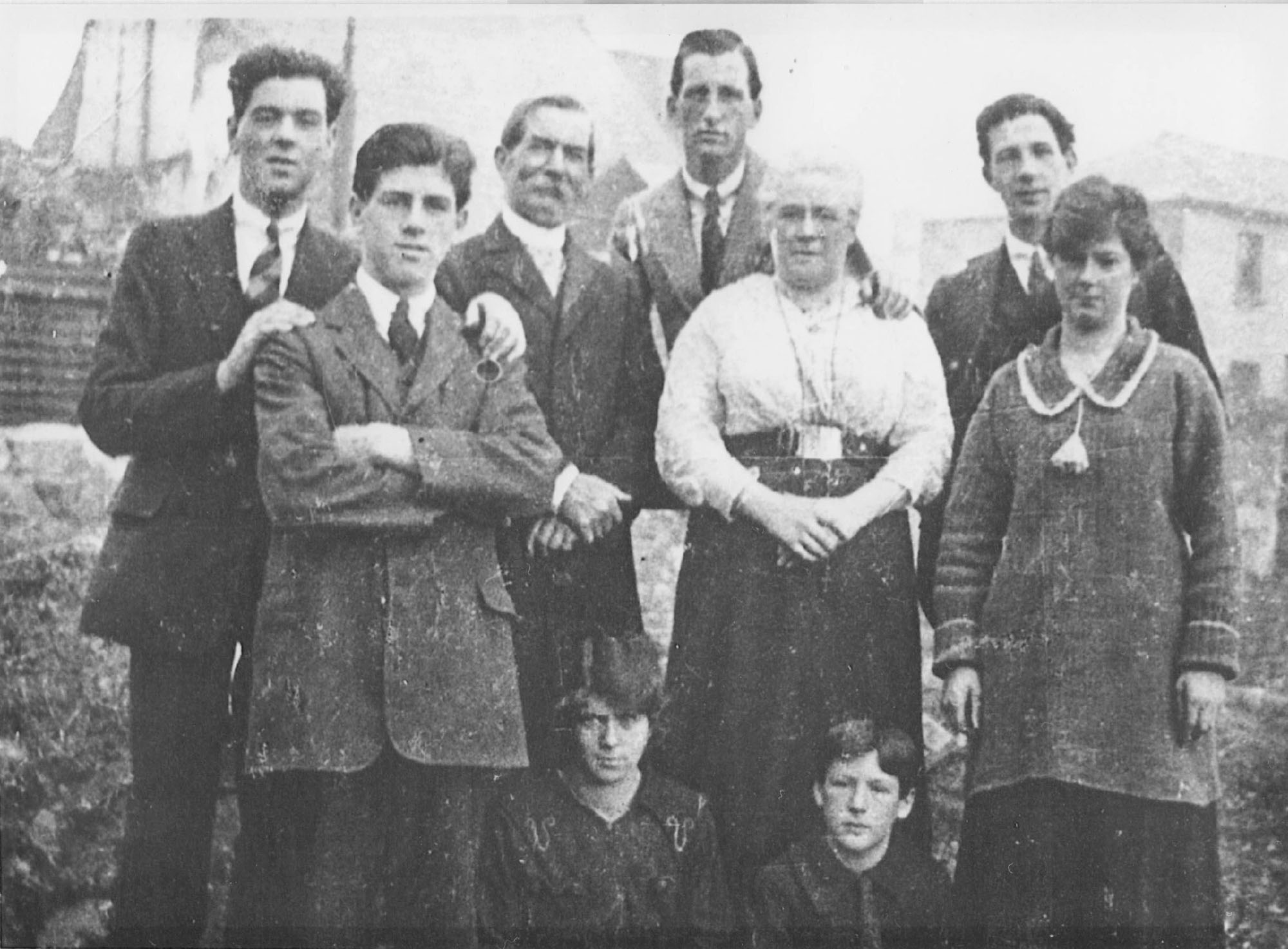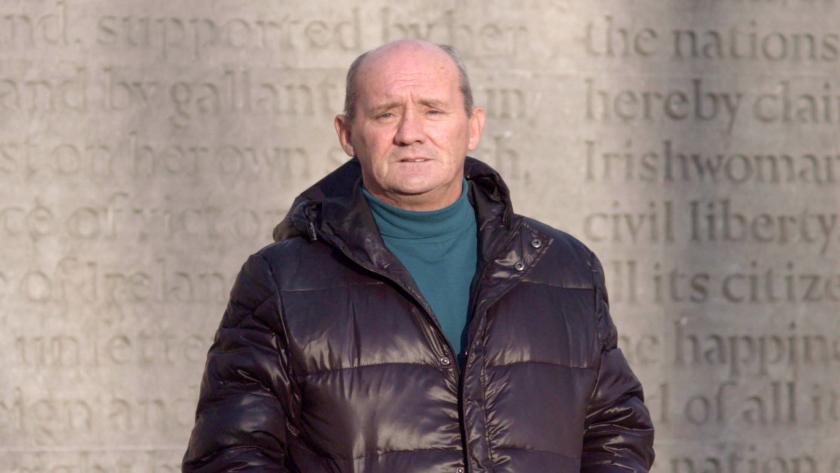It’s another military centenary, and another conundrum for broadcasters – how to tell a sombre story in an engaging way. The 1916 Dublin Easter Rising is an iconic event, but if we’re honest, not one many viewers will know in detail. The televisual warhorses for this kind of reminiscence – black-and-white portrait photos, sombre brass bands, and many talking heads atop camphor-scented tweed – are respectful but just a little bit dull. But to spice it up by choosing a paunchy, cross-dressing comedian in a curly wig to present? Dangerously flippant, surely?
Comedian Brendan O’Carroll is best known as scatalogical matriarch Mrs Brown of Mrs Brown’s Boys, and on the face of it an unlikely TV historian. As probable, perhaps, as seeing Lucy Worsley effing and blinding in a threadbare pinny, though an audience for such a show perhaps exists. Yet with three uncles (pictured below with O'Carroll's father and grandmother) who served in the rebellion, including one, Liam, who wrote a detailed (and rare, since events were ignored at the time) account of his experience, and a Dubliner’s perspective on the event’s contemporary significance, O’Carroll is well placed to interpret. Better still, he turns out to have an engaging blend of authority and humour that lightens the military documentary’s stolidness, while preserving a keen-eyed, sharp-tongued grasp of crucial events.
 The six-day rebellion is more important politically than militarily. Despite waiting for the British Empire’s weakest and most distracted moment in the depths of the First World War, this idealistic volunteer army with its obsolete contraband armaments never stood a chance of overthrowing the colonists with force, especially since it was divided internally, with Eoin MacNeill opposed to the use of force, leaving idealistic headmaster Padraig Pearse to lead the revolt. Due to start on Easter Day, it began a day late because MacNeill took out an advertisement in the Sunday Independent to countermand Pearse’s order to rebel. It had, moreover, only patchy local support, and what was supposed by its commanders to be a national rebellion only took off in central Dublin.
The six-day rebellion is more important politically than militarily. Despite waiting for the British Empire’s weakest and most distracted moment in the depths of the First World War, this idealistic volunteer army with its obsolete contraband armaments never stood a chance of overthrowing the colonists with force, especially since it was divided internally, with Eoin MacNeill opposed to the use of force, leaving idealistic headmaster Padraig Pearse to lead the revolt. Due to start on Easter Day, it began a day late because MacNeill took out an advertisement in the Sunday Independent to countermand Pearse’s order to rebel. It had, moreover, only patchy local support, and what was supposed by its commanders to be a national rebellion only took off in central Dublin.
Initially, the British Army was caught unawares by the extent of the nationalists’ ambition, and several hundred of the first reinforcements, many of them green young troops scarcely out of basic training who thought the Liffey was in northern France, were gunned down helplessly in the Battle of Mount Street Bridge. O’Carroll tells the story with compassion, explaining both sides skilfully. We do, in the end, see several sections of traditional, talking-heads documentary, but always enlivened by O’Carroll’s deep local knowledge (tactical geography was crucial) and wit.
The programme began on the set of Mrs Brown, and O’Carroll was never allowed to settle for long into his presenter’s role without a reminder of his scabrous alter ego, to the extent of being given a female narrator to speak the thoughts of O’Carroll the ancestor of a Dublin rebel. It could have been a gimmick, but in O’Carroll’s hands became an inspired piece of factual and entertaining television, a complex tale told with humour and originality.















Add comment